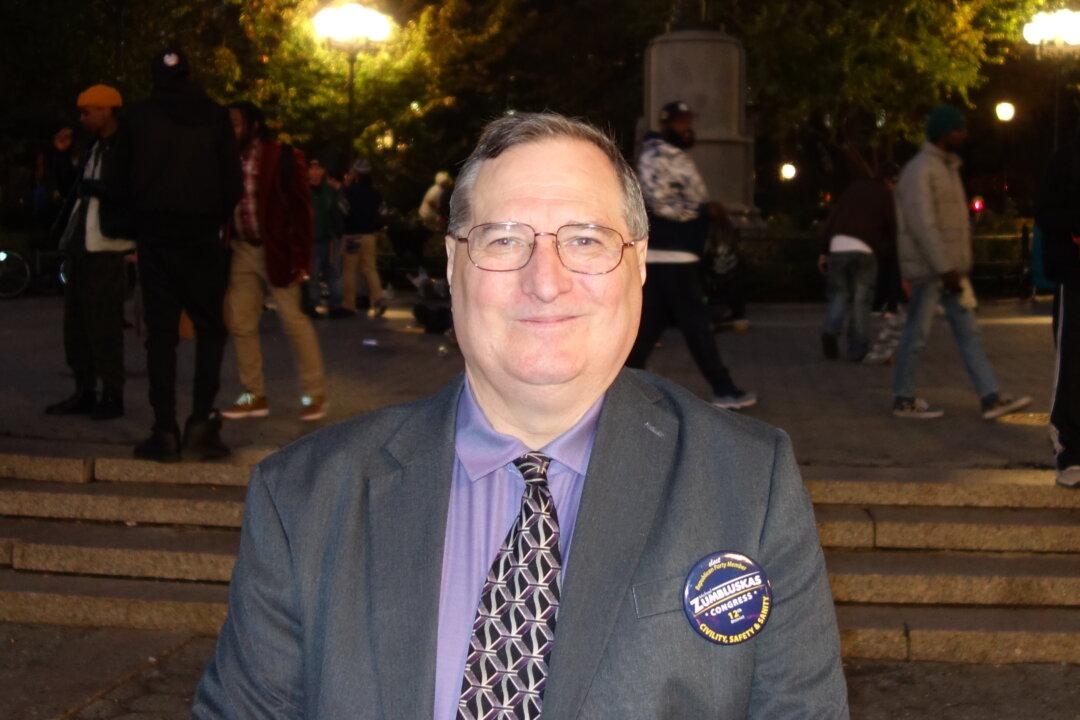Illegal immigration badly affects New York as it subsequently leads to other issues, according to Michael Zumbluskas, the Republican candidate who is running for New York’s 12th Congressional District.
Zumbluskas will be squaring off against two opponents in this November’s midterm elections, including longtime Democratic congressman Rep. Jerry Nadler and Mikhail Itkis, a member of the progressive left’s Working Families Party.




